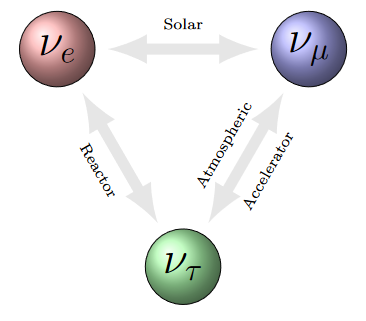Neutrino Physics
The Nobel Prize in Physics 2015 was awarded jointly to Takaaki Kajita (of the Super–Kamiokande experiment) and Arthur B. Mc-Donald (Sudbury Neutrino Observatory) for the discovery of neutrino oscillations, which show that neutrinos have mass. Three types (or flavors) of neutrinos exist. They change into one another when propagating: they oscillate.
Neutrino-nucleus collisions are a method to detect neutrinos and study oscillations. The determination of the parameters that describe the oscillations, require detailed theoretical modeling of the interaction between the neutrino and the atomic nucleus.


Complexity Science
Complexity science is a multidisciplinary field that investigates how many interacting components, at multiple scales, self-organize to create emergent, non-trivial global structures and behaviors. It studies complex adaptive systems, where interactions and feedback loops drive dynamic changes and emergent properties.
This field explores how seemingly simple rules can lead to complex outcomes, often without central control.

